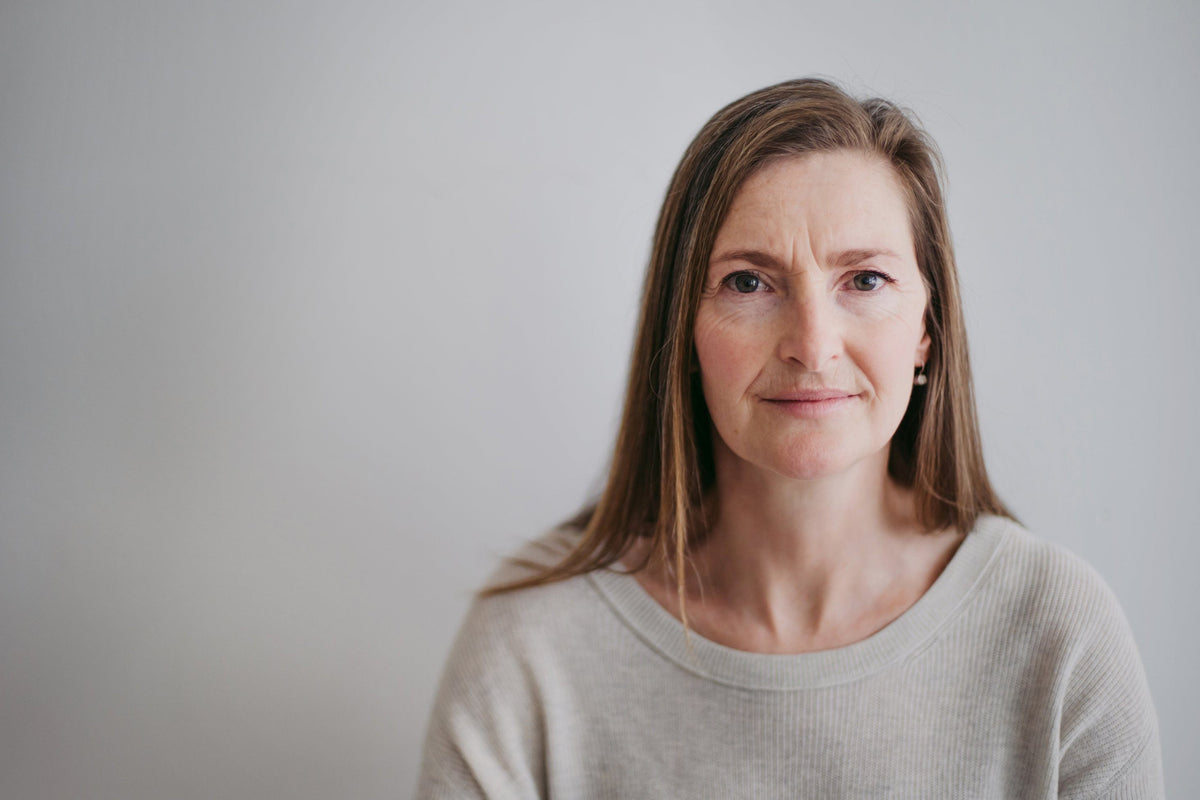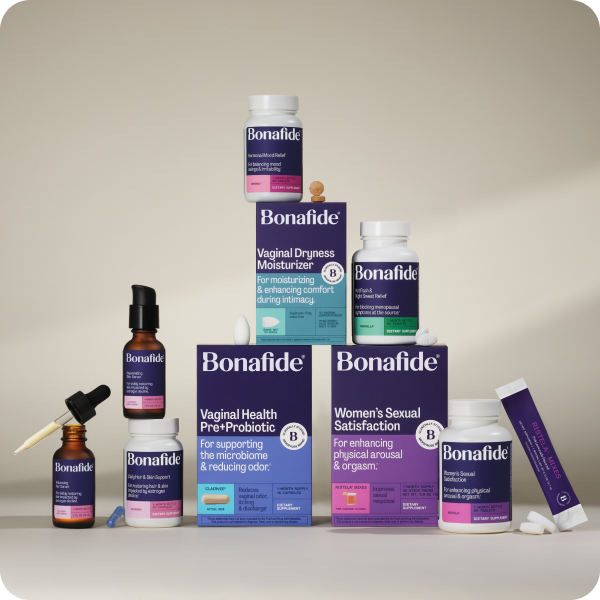Growing older is simply a fact of life. But while age often comes with gifts, like greater wisdom, it also poses new challenges for many women. We’re talking specifically about menopause — an area where support and information gaps still abound, despite the fact that half the global population will experience this transition.
Menopause doesn’t need to be a mysterious villain that lurks along the outskirts of middle age. Knowing what’s going on with your body and what to expect throughout the menopause transition can make it easier to prepare and adapt.
What is Early Menopause?
An area that surprises many is the average age women start experiencing symptoms. While menopause symptoms will likely begin in your late 40’s or early 50’s, every woman’s body is unique, and it’s not unheard of for symptoms to begin before age 45. Roughly 5% of women will go through “early menopause”, meaning between ages 40 and 45.1
Sometimes, specific factors can induce premature menopause, which is defined as menopause before the age of 40. For example, a hysterectomy with oophorectomy (removal of ovaries), radiation therapy, or certain autoimmune diseases could cause premature menopause.2
When Do Menopause Symptoms Start and End?
Menopause symptoms can last a few years, with most women making the full transition over an average of 7.4 years.3 But just like the age of onset, the menopausal transition can vary widely, with women experiencing symptoms for longer or shorter periods of time. Symptoms often become more severe in the years and months immediately before and after menopause — the moment in time when you’ve gone without a period for 12 consecutive months. During these phases, hormone fluctuations tend to be the most volatile.
Symptoms tend to lessen in frequency and severity in years after menopause. That said, certain common menopause symptoms, like vaginal dryness, can continue into late postmenopause.4
Common Signs and Symptoms of Menopause
A surprisingly common question women ask is, “How will I know when I’m in menopause?” and we’re not referring to early menopause, as referenced earlier. This is hard to predict, as women enter menopause at a wide range of ages. However, the age when menopause begins can be hereditary, so be sure to talk with the older women in your family to get an idea of when you may start to experience symptoms.
Exactly which symptoms you’ll experience is a different story. While research has confirmed genetics play a role in determining a woman's age at menopause,5 additional studies are needed to determine if genes are a predictor of which actual symptoms a woman will experience. The broad variety of menopause symptoms makes predicting your experience even more complicated.
What is the most common symptom of menopause? Well women are often surprised to learn there are at least 34 recognized symptoms associated with menopause — from the widely discussed, like hot flashes, to the little known, like dry eyes and skin.6 The full list of menopause symptoms is likely much longer.
Additionally, early menopause symptoms can look similar to the ones experienced during traditional menopause. Irregular periods are the most telltale sign, and hot flashes, night sweats, and vaginal dryness are all common signs of early menopause.
What Are the Worst Menopause Symptoms?
It’s difficult to label certain menopause symptoms as “worse” than others — every woman’s experience is unique, and the severity of even the most common menopause symptoms can vary widely. That said, you’ll often hear women describe the most common menopause symptoms as being the worst: hot flashes, night sweats, vaginal dryness, low libido and painful sex can feel extreme and even disrupt an individual’s quality of life.
The menopause transition begins with perimenopause. For more information on how to better understand the transition from perimenopause to menopause, check out this brief video from Bonafide Chief Medical Officer, Dr. Alyssa Dweck, below.
Treatment for Menopause Symptoms
No matter the symptom, it’s important to seek treatment if your life is being negatively impacted. Talk with your healthcare provider about creating a plan to work with the symptoms as they begin. There are many simple and natural ways of dealing with the symptoms you experience during menopause. From eating a healthy diet to hormone-free supplements, you’ve got options when it comes to treatment.
Resources
- https://www.womenshealth.gov/menopause/early-or-premature-menopause
- https://www.healthline.com/health/menopause/risk
- https://www.ncbi.nlm.nih.gov/pmc/articles/PMC4433164/
- https://www.womenshealth.gov/menopause/menopause-basics
- https://www.sciencedaily.com/releases/2019/06/190612110127.htm
- https://www.heyperry.com/what-are-the-34-symptoms-of-menopause/











Comments
Post commentI am well over menopause yet I still have the hot flashes many times a day & night sweats also. It still is disrupting my daily life..Will this help me? 🙏🏻🙏🏻🙏🏻🙏🏻
The night sweats and hot flashes were debilitating. Changing my shirt at night because it was soaked with sweat. I felt like I was cooking from the inside out and I’m that lady that is “always cold”. Started on Bonafide because I saw a pamphlet at the OBGYN office so I ordered it. Took about a month and hot flashes and night sweats are GONE. I couldn’t believe it. Took it thinking maybe they would not be so severe but they are gone. I also take Black Cohosh supplements. (Checked with DR. to make sure it’s ok- he said we will do blood work every 3 months to make sure the liver is fine but he didn’t see an issue with it and just had bloodwork and all is well). Try this ! It’s worth it. I’ll be ordering more!
This is a very confusing part of life that no one ever talked about in my family. So, I really did not know what to expect, There is so much confusing information on the internet, i am so thankful that my ObGyn had information, on a much safer proven product, to help me with this new season in my life. The information presented hear is just what I needed, to understand what is going on with me.
Thank you so much for being an excellent resource. There is just not enough valuable and believable information available anywhere about menopause and its many many upsets and life changes. Never expected this time in my life to be this complicated and difficult. It has always been presented as humorous and not a big deal to be worried about but it is. It’s awful and interrupts my life daily and no one prepared me for this!
Very Informative!